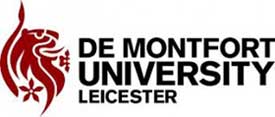About Forensic Science Bsc (hons) in De Montfort University
Forensic science – familiar to most of us thanks to its appearances in popular TV police dramas – is the application of science to law. It’s carried out through the collection, preservation and analysis of evidence.
If you have an enquiring mind, are good at solving scientific problems and want to work with cutting-edge equipment and facilities, then you could be the right person to work at a crime scene or analyse the evidence recovered from that scene.
On this course, you’ll study forensic chemistry, biology, imaging and photography, the essentials of forensic investigations, and professional and quantitative scientific skills.
Then you’ll take modules on bodies, tissues and fluids, materials ID, drugs of abuse, analytical forensic chemistry, forensic IT and issues in criminal justice.
The third year will cover forensic case studies and the presentation of evidence, then fire, arson and explosions, authenticity and fraud, DNA profiling, forensic chemical pathology, and project and professional skills.
Key features
- This course is professionally accredited by The Chartered Society of Forensic Sciences and developed in collaboration with Leicestershire Police, ensuring your learning remains relevant to current practice and standards.
- Develop your practical and professional skills in our crime scene house, crime studio, crown court and forensic science laboratory facilities.
- Our strong links with industry mean you’ll not only develop practical and professional skills but also be offered the opportunity to apply them to real-world scenarios by spending a year on placement.
- Our teaching is delivered by expert academics and practitioners, including Leisa Nichols-Drew, who represented the UK, DMU and Forensic Science on an international project aimed at improving detection and reducing occurrences of knife crime.
- Gain valuable international experience as part of your studies with our DMU Global programme, which has enabled students on previous trips to unearth information on human rights abuses and genocide in Guatemala, attending the New York Supreme Court to learn about judicial processes, and support refugees in Berlin.
- Our graduates have gone on to work for world-leading employers including LGC Forensics, Cellmark Forensics, Eurofins Forensics, GlaxoSmithKline, Reckitt Benckiser and 3M.
Entry criteria
- A typical offer is a minimum of 112 points from at least two A levels with a science subject (from Biology, Chemistry, Physics or Applied Sciences) at grade C or above, or
- BTEC National Diploma Science BTEC - Distinction/Merit/Merit, or
- BTEC Extended Diploma Science BTEC - Distinction/Merit/Merit
Plus five GCSEs at grade C/4 or above including Maths and English.
Alternative qualifications include:
- Pass Access in the QAA Accredited AHE (Science) with at least 30 Level 3 credits at Merit, to include 15 credits at Merit in Chemistry or Biology. GCSE Maths and English grade 4 or above required as separate qualifications.
We will normally require students to have had a break from full time education before undertaking the Access course.
- International Baccalaureate: 26+ with 6 higher level points in a science subject
English language requirements:
If English is not your first language an IELTS score of 6.5 or equivalent when you start the course is essential. English language tuition, delivered by our British Council accredited Centre for English Language Learning (CELL), is available both before and during the course.
De Montfort University Highlights
| Type of Institution |
Public |
| Campus Setting |
Urban |
| Endowment |
£1.17 million |
| Number of Campuses |
4 faculties |
| Number/Percentage of International Students |
23205 |
| Total number of Professors |
3240 |
| Student Satisfaction Rate |
86% |
| Graduate Job Rate |
97.3% |
| Number of Residence Vacancy |
Around 3000 |
| International fee |
Undergraduates- £13240 (annual) Postgraduates- £15950 (annual) |
| Number of Academic Programs |
UG, PG, Part time, distance, blended |
| Mode of Program |
Full time, distance and online |
| Average Graduate Salary |
19800 pounds a year |
De Montfort University The tuition fee (In GBP) for various programs is tabulated below:De Montfort University Average Cost
| Field of Study |
Avg.Fees |
| Art, Design and Humanities: |
£13,750 |
| Business and Law |
£13,750-£14,550 |
| Media |
£13,750 - £14,250 |
| Engineering |
£14,250 |
| Computing |
£14,250 |
| Health and Life Sciences |
£13,250 - £14,250 |
| Nursing BSc |
£14,950 |
De Montfort University The Average Tuition Fees and Other Expenses
| Expenses |
Estimated cost in pounds |
| Undergraduate tuition fee |
13,250- 14950 |
| Postgraduate tuition fee |
13600-15,900 |
| On campus accommodation |
5,000-6040 |
| Average cost of living |
97-110 per week |
DMU International Scholarship up to 1500 pounds
- TEF Gold Outstanding Alumni Scholarship up to 3000 pounds
- Leicester Castle Business School Scholarships:
- Global MBA Scholarship £3,000 - £5,000
- Full Postgraduate Scholarship
- LGBTQ + Allies Scholarship-two fully funded post graduate taught scholarship packages including full fee weaver and maintenance bursary.
- Vice Chancellor's Sports Scholarship- three different scholarship packages are available with eligible students being awarded up to 6000 pounds of support.
